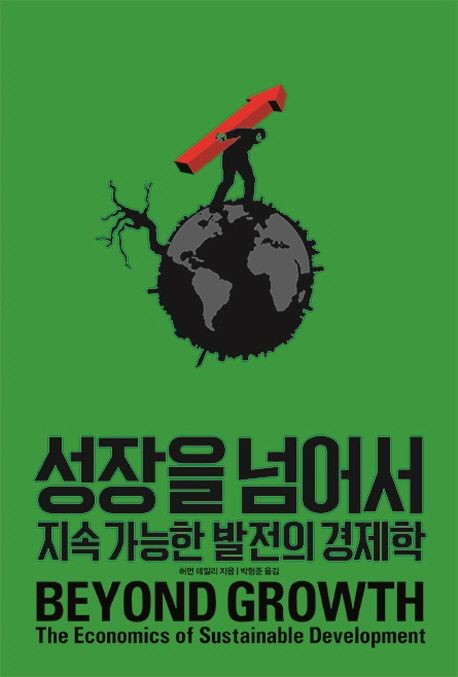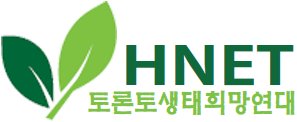
탈성장이 더 나은 삶 보장
빅터 교수, 생태경제 50년간 시뮬레이션 결과
탈 탄소 경제에 대한 이야기를 지난 주에 이어 좀 더 이어가 보자. 경제학을 ‘1’도 모르는 필자이기에 대부분의 내용은 관련 전문가들의 이야기를 이해하는 대로 전해보려 한다.
무척 가파른 성장을 수십년 이어와 ‘눈 떠보니 선진국’이라는 책까지 나오던 한국인으로서는 성장을 멈추자거나 늦추자는 말에는 마치 하늘이 무너지는 듯한 반응을 보이기 쉽다. 지금까지처럼 5% 근처의 고도 성장이 가능하지도 않지만 여전히 우리는 성장과 발전에 점수를 주고 있다.
그러나 지금까지 자연에서 자원을 착취해 이뤄 온 경제, 이산화탄소를 내뿜어 이뤄 온 경제는 지속하기 어렵다. 그렇다고 경제성장을 곧바로 포기할 수 없어 ‘성장’ 앞에 다른 그럴 듯한 단어를 붙여서 녹색성장이나 포용 성장, 스마트 성장, 공유 성장, 지속 가능한 성장 등의 용어를 학계와 정치계가 쏟아내고 있다. 심지어 성장을 하지 말자는 것처럼 보이는 탈성장이라는 가장 급진적인 용어까지 경제학이라는 분야에 등장하고 있다.
탈성장과 궤를 같이 하는 경제적 용어로는 독일의 포스트성장, 영어권의 정상상태경제, 도넛 경제, 성장없는 번영 등의 이론들이 나오고 있고 이들은 기본적으로 과거의 고도 성장이 GDP의 확대는 이뤘지만 개인의 행복지수가 거의 오르지 않거나 오히려 퇴보한 것에 눈길을 주고 있다. 경제와 삶의 행복이라는 가치가 등식이 아님을 깨닫고 성장이 꼭 필요한 것은 아니라는 화두를 던지는 것이다. 생태 경제도 바로 그런 지점에 비중을 두고 있는 것이다. GDP의 증가가 목표가 아니라 인간 행복지수를 높이고 지구의 생존가능성을 높이는데 주안점을 두고 있다. 성장을 통해 일자리를 늘리야 더 많은 사람의 기본 생계가 유지된다는 신고전파 경제학의 기본 원리와 달리 생태경제학에서는 그것조차 생태계가 감당할 수 있는 범위 내에 머무를 때 의미가 있고 지속 가능하다는 것이다. 무한성장으로 달려가는 것이 아니라 사람과 지구가 공존하고 지속 가능할 수 있는 최적의 범위 안에서 자원 추출과 사용, 폐기를 적정 선으로 유지해야 한다는 것이다.
생태경제학의 대가 허먼 데일리는 배에는 적재 용량이 배가 버틸 수 있는 범위를 넘지 않도록 흘수선이라는 게 있는데 지구의 흘수선도 지켜야 안전하게 지속적 항해를 할 수 있다고 그의 책 ‘생태경제학’에서 설명했다. 다만 지구의 흘수선은 화폐나 자본으로 계산하는 것이 아니라 물리적 총량(물질과 에너지)의 한계선을 정하고 그 안에서 움직여야 한다는 것이다.
그의 주장이 완벽한 것은 아니라 하더라도 성장을 추구하다 내외부의 요인으로 성장이 멈추거나 후퇴해 실업이나 인플레 등 온갖 어려움이 닥치는 것과 달리 생태경제 또는 탈성장 이론에 따른 의도된 성장 후퇴 혹은 둔화는 결과가 다를 수 밖에 없다. 다시 말해 자동차가 달리다가 장애물에 부딪혀 멈추는 것과 브레이크를 밟아 부딪히기 전에 멈추는 것의 차이가 될 수 있다.
토론토 욕 대학의 피터 빅터 교수는 2017년부터 50년간 저성장 혹은 제로 성장을 목표로 기존 경제이론과 생태경제 이론의 차이를 시뮬레이션 해 보았다. 그 결과 관행적인 경제 성장에 비해 생태경제적 전환을 통한 성장은 연평균 0.7% 성장하면서 웰빙 행복지수는 35% 늘었고 소득분배 개선, 온실가스 60% 감축, 노동시간 단축, 고용률 유지 등의 결과를 얻었다.
기후 위기와 함께 세계는 AI의 등장으로 급격한 변화를 맞이할 수밖에 없다. 전문가들은 의사, 변호사, 컴퓨터 엔지니어 등 전문직뿐 아니라 전화 상담원, 자동차 운전수, 보험 판매사 등 온갖 종류의 직업이 대폭 줄어들거나 거의 사라질 대량 실업의 위기에 인류는 직면해 있다. 대신 이런 직종에서 만들어지던 부는 AI를 개발하고 소유한 전문 기업들이 쓸어가게 된다. 따라서 생태경제로의 전환, 기본소득 등의 사회 안전망 확충 등을 통해 인류는 기존의 경제이론을 뛰어 넘는 도약을 다시한번 이뤄야 할 이중위기에 직면해 있다.
De-growth is better for life
Prof. Victor simulates 50 years of an ecological economy
Let’s continue the conversation about the decarbonized economy from last week. Since I don’t have a first degree in economics, I’ll try to present most of the content as I understand it from the experts.
As a country that has experienced decades of very steep growth and even a book called ‘We Woke Up and We’re a Developed Country’, it’s easy for Koreans to react to the idea of stopping or slowing growth as if the sky is falling. We are still rewarding growth and development, even though it is not possible to grow at a high rate of nearly 5%.
But an economy built on exploiting resources from nature and spewing out carbon dioxide is unsustainable, and we can’t just give up on economic growth, so academics and politicians are throwing around terms like green growth, inclusive growth, smart growth, shared growth, sustainable growth, and other fancy words in front of growth. Even the most radical term, degrowth, which seems to suggest no growth at all, is emerging in the field of economics.
Economic terms that go hand in hand with degrowth include post-growth in Germany, steady-state economy in English, donut economy, and prosperity without growth, all of which basically call attention to the fact that the high growth of the past has resulted in an expansion of GDP but little or no improvement in personal well-being. Realizing that the value of the economy and the happiness of life are not equal, they raise the topic that growth is not necessary. That’s what the ecological economy is all about. The goal is not to increase GDP, but to improve human well-being and increase the viability of the planet. Unlike the basic principle of neoclassical economics, which is that growth is about creating more jobs so that more people can have a basic livelihood, ecological economics says that even growth is meaningful and sustainable if it stays within what the ecosystem can sustain. It’s not a race to infinite growth, but rather a balancing act of resource extraction, use, and disposal within an optimal range that allows people and the planet to coexist and be sustainable.
In his book Ecological Economics, Herman Daley explains that ships have a draught line to ensure that the load capacity of the ship does not exceed what the ship can sustain, and that the draught line of the earth must be respected to ensure safe and sustainable sailing. However, the Earth’s drip line is not calculated in terms of money or capital, but rather the limit of the total amount of physical matter and energy that we have to move within.
Although his argument is not perfect, unlike the pursuit of growth, which stops or retreats due to internal and external factors, causing all kinds of difficulties such as unemployment and inflation, the intended retreat or slowdown of growth according to ecological economy or degrowth theory will have different results. In other words, it could be the difference between a car hitting an obstacle and stopping, or slamming on the brakes and stopping before hitting it.
In 2017, Professor Peter Victor of York University in Toronto simulated the difference between conventional economic theory and ecological economic theory, with the goal of low or zero growth for 50 years. The results showed that compared to conventional economic growth, growth through an ecological transition grew by an average of 0.7% per year, while well-being increased by 35%, income distribution improved, greenhouse gas emissions were reduced by 60%, working hours were reduced, and employment rates were maintained.
With the climate crisis, the world is poised for radical change with the rise of AI. Humanity is on the brink of mass unemployment, where all sorts of jobs will be drastically reduced or eliminated, not just professional jobs like doctors, lawyers, and computer engineers, but also jobs like phone operators, car drivers, and insurance agents. Instead, the wealth generated by these jobs will be siphoned off by specialized companies that develop and own AI. Therefore, humanity is facing a double crisis that requires us to make a leap beyond conventional economic theory by transitioning to an ecological economy and expanding social safety nets such as basic income.
Translated with DeepL.com (free version)
